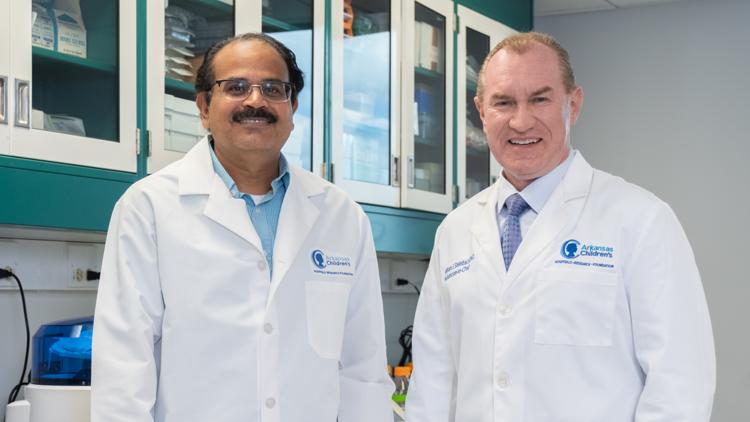LITTLE ROCK, Ark. — Arkansas Children's announced that they were awarded more than $3 million in grants from the National Institutes of Health (NIH) to help establish a research program at Arkansas Children’s Research Institute (ACRI).
The funding will be used by Praveen Juvvadi, PhD, and William Steinbach, MD, a pair of infectious disease experts.
Steinbach serves as chief pediatrician at Arkansas Children’s and chair of the Department of Pediatrics at the University of Arkansas for Medical Sciences (UAMS) College of Medicine, while Juvvadi is also an associate professor of pediatric infectious diseases at UAMS.
The research will focus on a germ considered to be the leading cause of death for patients with weakened immune systems known as aspergillus fumigatus.
This relatively common fungus can be found in the natural world in places containing decaying leaves. Healthcare teams often have trouble fighting the germ since it's able to adapt and strengthen itself against current treatments.
According to statistics, the fungus' mortality rate exceeds 40%.
“The World Health Organization recently named Aspergillus fumigatus as among the most critical fungal threats facing the world. For children with compromised immune systems, this research will embody Arkansas Children’s mission of creating a healthier tomorrow,” Steinbach said. “These findings could promise a future that many of those patients are not guaranteed today.”
While scientists still do not fully understand how this fungus thrives, Juvvadi and Steinbach have identified what they believe may be responsible for its rapid growth and reproduction.
This new funding from the NIH will help the team study the mechanism of how protein phosphatase calcineurin and protein kinase A cause the fungus to grow, spread, and resist medications.
The funding will be administered through two grants: a five-year, $2.8 million R01 award and a two-year, $438,000 R21 award.
“We are thrilled with NIH’s support of this work through two awards in the same cycle,” Juvvadi said. “This funding will help us reach critical insights into Aspergillus fumigatus’ survival strategies and bring us one step closer to developing life-saving therapies for patients as they fight this infection.”




